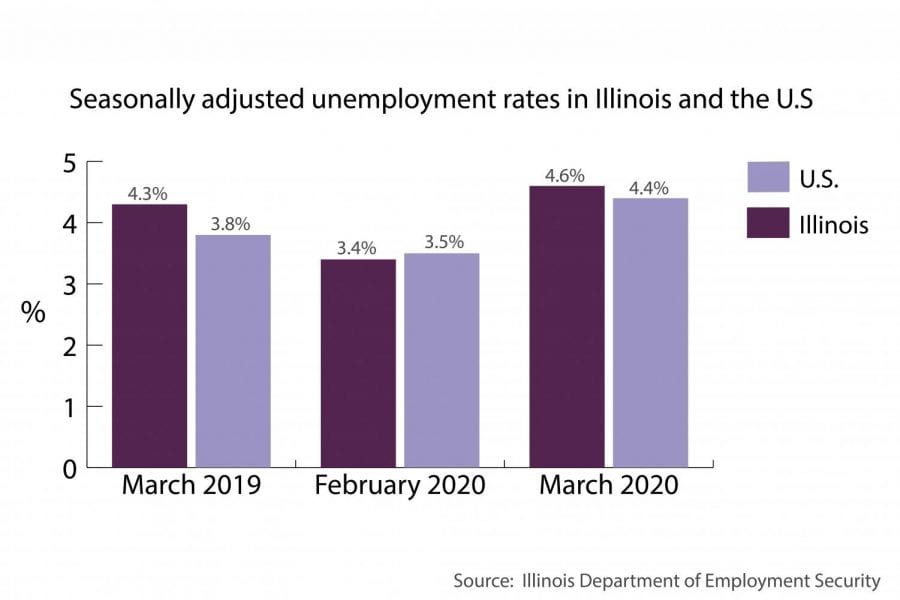The Covid-19 pandemic is sweeping through America, hurting the economy in more ways than imaginable. The viral outbreak causes uncertainty in markets, leading to significant drops in stock prices everywhere. For example, the 11-year bull market has finally come to an end (a bull market is the condition of a financial market in which prices are increasing or expected to increase). How can one truly understand the impact the decline of the economy has on a nation and on a global scale? How does the economy reflect the state of society during this time? First off, the government’s response to this outbreak must be analyzed.
Limiting the spread of Covid-19 means restricting access to restaurants, shops, and other small businesses that rely on cash flow. Physical contact is discouraged, and social distancing is enforced. As such, small businesses lose their customers, and therefore they lose profit. Without profit, employees are laid off from their jobs because their boss cannot pay off their lease, let alone their staff. Over 20 million Americans are now unemployed due to this virus, and that number will only grow if the virus continues its deadly spread. Because the government’s slow and ineffective response compared to other countries has left thousands of small businesses across the country to close, many are not able to support themselves.
Not only can the economic hardships during the pandemic be looked at from the standpoint of a local economy, but it can also be looked at on a global scale. In addition to its effects on small businesses, the virus is also greatly affecting large industries and all sectors of the United States market. One major industry that is suffering from the effects of lost profit is the transportation industry. Airline, train, bus, and all other public transportation companies are rapidly losing profit and customers because people are afraid to be in such crowded spaces, even when effective sanitization and social distancing are carried out. The entertainment industry is suffering as well, as fewer people are going to movie theaters, plays, and concerts. On the contrary, the healthcare industry is thriving because medical treatments are in high demand. However, not all health care insurance plans extensively cover Covid-19 treatment, so not all patients have been able to afford their treatment, and hospitals lose profit.
Although the months of February and March entailed hardships and struggles, the market has been relatively stable since, but it has not improved. Despite the market’s slow stabilization, it doesn’t change the fact that millions are still in need of its benefits, as the stock market does not reflect the economic status of the country. Everyone has to make sacrifices at some point during the pandemic, and unfortunately for some, this means unemployment. Once society returns to “normal”, there is a possible second wave of uncertainty hitting the market yet again. If everyone quickly returns to their pre-Covid-19 lives, disregarding health guidelines put into place by the Centers for Disease Control and Prevention, state, and local governments, the virus will surely see a new surge in case numbers, as it has this summer and right now in November across the country. To do our part as citizens, we must work diligently to contribute to the nation’s recovery. Otherwise, we risk permanent economic damage, and more importantly, we risk losing more lives.

